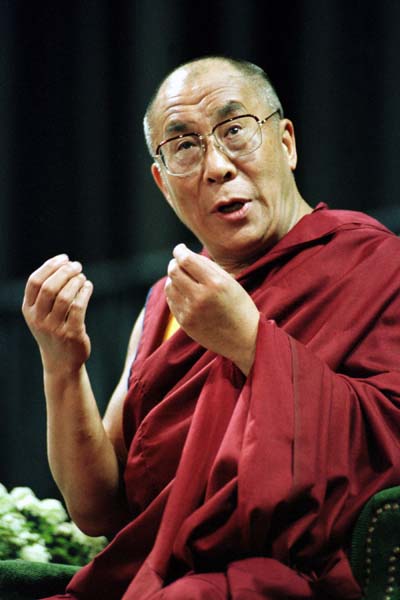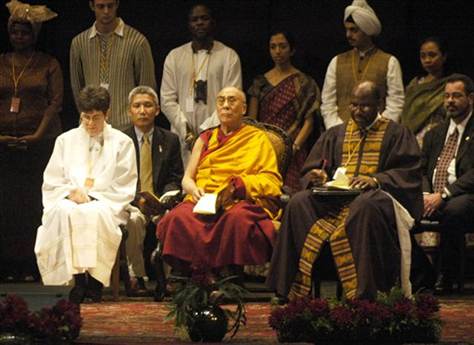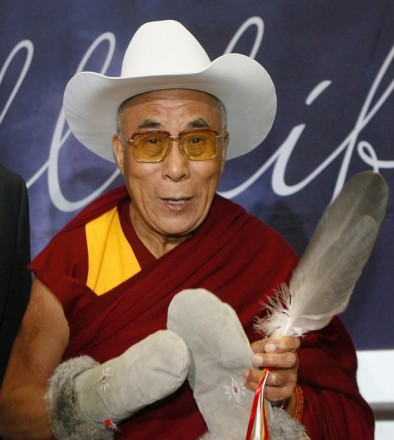The Dalai Lama’s Work with Buddhism
The role of the Dalai Lama as a religious leader is very important in Tibetan Buddhism. Because of this, the 14th Dalai Lama is able to use his influence to teach many important messages about the preservation of Buddhism in today’s society.
These teachings include:
1. Making sure all Tibetan Buddhists are educated in the fundamentals of Buddhism
Although Buddhism is well preserved in certain parts of Tibet, knowledge of Buddhism among the general public is still poor. Due to this, one of the Dalai Lama’s most important teachings is that Tibetan Buddhists receive a strong foundation in Buddhist concepts before learning about the rituals surrounding them, which is what has traditionally happened in the past. Ways that he wants to ensure this include making sure that monks and nuns are trained, disciplined, and able to teach rather than simply being large in numbers, as well as having the general public reach out to them and learn about the Buddhist philosophy.
2. Being compassionate towards others
The Dalai Lama believes that the purpose of life is to be happy and to “discover what will bring about the greatest degree of happiness,” as he once said in a speech. The best way to achieve this happiness and inner tranquility, he recalls from experience, is by becoming more compassionate towards others – that is, to help heal their pain with sympathy and kindness.
3. Integrating opposing concepts through Buddhism
Communism is currently a major issue in Tibet due to its history with China. Because of this, there is much confusion among Tibetans as well as outsiders as to where they should ascribe their beliefs.
The Dalai Lama stresses that there isn’t a singular solution to a Buddhist’s fundamental problem of overcoming suffering; rather, there are multiple paths to achieving peace and happiness. Some of these pathways have to do with the principles of freedom and unity – principles that in turn make up human nature. The Lama relates this to democracy, believing it to be the only stable government structure that unites people and gives them the freedom of choice. In this message, the Dalai Lama advocates for a concept of Buddhism while also encouraging Tibetans’ coexistence with others.
Read More:
Three Main Commitments
Unity: Coexistence with Others
Buddhism is a religion that emphasizes the maintenance of peace. As a result, those who follow the teachings of Buddhism are typically tolerant of other religions – they do not force others to follow their own beliefs, although they may try to convert nonbelievers. One notable example of widespread conversion to Buddhism can be found during the reign of the Indian king Asoka, during which Buddhist missionaries who were sent out along trade routes had a profound impact in Asia as they converted people they met on their journey. Eventually Buddhism would reach China, Japan, and Korea - essentially the entire southeastern region of Asia. How is such a widespread and popular religion that has preached harmony and serenity for thousands of years faring in the modern world from the eyes of the Dalai Lama?
The Dalai Lama himself has risen to a high status in world news. In order to spread his message and the word on the situation in Tibet, he has and still is traveling all around the globe, speaking to people in speeches and holding the occasional public teaching. He has won countless awards for his work and advocacy for peace, be it for a Buddhist believer or not. Through his efforts, people now recognize him as a leader of Tibetans uninfluenced by nationality, race, or religion. In fact, there is one such instance that clearly shows the Dalai Lama’s openness to the rest of the world – when he publicly accepted and wore a cowboy hat that Dave Bronconnier, the Mayor of Calgary (Alberta, Canada) had put on his head back in 2009.
The Dalai Lama says that he will always promote peace, compassion, and other similar things. In addition, he refuses to advocate violence against China despite the harsh and violent oppression Tibetans are undergoing at this very moment. Advocating such violence would not only go against his principles, but also bring about the death of that many more Tibetan citizens by the hands of the Chinese. Instead, the Dalai Lama has formally rejected the Seventeen Point Agreement the Chinese had forced upon him while he had been in Tibet, proposed the Five Point Peace Plan, and also acknowledged that when the Tibetan exiles have been rightfully restored to their homeland, Tibet will need a new and more democratic government than the previous monastic one. As of now, the Chinese have responded negatively to the Dalai Lama’s proposals of negotiations between the Tibetans and Chinese.



